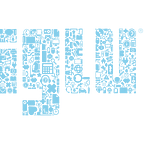The key to wellbeing is to never stop learning
Your comfort zone is getting in the way of your professional development
Now more than ever, businesses understand that their most valuable assets are their employees’ knowledge and wellbeing.
In the Human Resources community, free or subsidised training is hailed as one of the smartest perks an organisation can offer. Even giving employees an education allowance to spend on the learning opportunities they deem worthwhile brings huge benefits to both parties.
Recruiters increasingly differentiate candidates by looking for evidence of unusual skills or experience in fields that are not obviously related to the job. This isn’t a purely philosophical shift; almost all of today’s disruptive companies were born from the fusion of contrasting skills. In 2017, Apple was so keen to preserve this concept that they designed their new headquarters to facilitate random walk-and-talk meetings between members of different departments.
The best companies don’t just recruit experts.
They look for professionals who are lifelong learners, who will respond with lateral, imaginative thinking when ‘black swan events’ occur. This sets such companies apart from the dangerous complacency at the heart of traditional corporate culture, which still behaves as though a professional at the peak of their career has nothing more to learn. This attitude lends itself to steeply hierarchical management and derivative strategies. Companies that think like this perform well enough in times of economic stability, but easily succumb when crisis strikes.
These environments are stifling for digital professionals, who face new technical and creative challenges every day. Rather than await rescue by an injection of open minded management talent, many of them opt to become their own heroes and uproot themselves as digital travellers or nomads. Travel is perhaps the easiest way to escape from a stale comfort zone and become a ‘beginner’ again. Adapting to a new set of cultural norms and a radically different pace-of-life allows the mind to become more flexible and resilient, and even short trips abroad have been reported to have measurable benefits for productivity and mental health.
As a result, the professionals who populate co-working spaces around the world tend to have an unusual combination of skills and a fiercely independent approach to solving problems. Organisations have gone to great lengths to try and foster collaboration between digital nomads, with some degree of success. Nevertheless, many nomadic professionals discover that constantly moving from location to location is not conducive to either a fulfilling social life or to career success. Putting roots down in one city allows professionals to build highly competent digital expat communities, where knowledge flows freely and the opportunities for creative partnerships are abundant.
Digital Expats in Thailand have discovered there’s not necessarily a clear distinction between professional development and exploring a new pastime. The warm weather and sheer diversity of skills available in South East Asia has given rise to a particularly relaxed business culture. It’s not rare to overhear conversations between vegan hippies, accountants and software engineers discussing everything from permaculture to martial arts, and this environment is a magnet for experts in subversive and unusual fields like cryptocurrencies and biohacking. As the crypto trend takes off, serious investors are finding themselves increasingly frustrated with the sheer volume of bad information. As with any field, the best people to talk to are those who’ve been involved with the technology from the early days — and there’s a huge number of bitcoin early adopters in Thailand’s digital communities.
It’s the intersection of skills from radically different disciplines that allows such knowledge to thrive.
For many digital professionals, the most compelling avenue for exploration is the relationship between productivity and wellbeing. Tech workers have been interested in productivity hacks for years, and as Silicon Valley grew into the business giant it is today, the geeks found a lot to talk about with business theorists. Today it feels like no technology blog is complete without a few articles about entrepreneurial self-management, and this ecosystem is now undergoing another evolution as it gets more closely involved with yoga and eastern philosophy. Of course, the best way to learn any new discipline is by getting close to the source.
Is it any wonder that so many digital professionals are flocking to Southeast Asia?
Asian approaches to health and society can be vastly different from those of the West. Traditional medicines and techniques for enhancing well-being have become more popular than ever amongst millennials and stressed out executives alike, and there’s no shortage of Western-run online communities dedicating to spreading the gospels of yoga, mindfulness or various detoxing programmes. Of course, none of these communities can compete with the knowledge available to expats actually living and working in Asia. When Iglu hosted Teemu Arina — co-author of The Biohacker’s Handbook — in Chiang Mai, yet another convergence of wisdoms from diverse fields was born.
